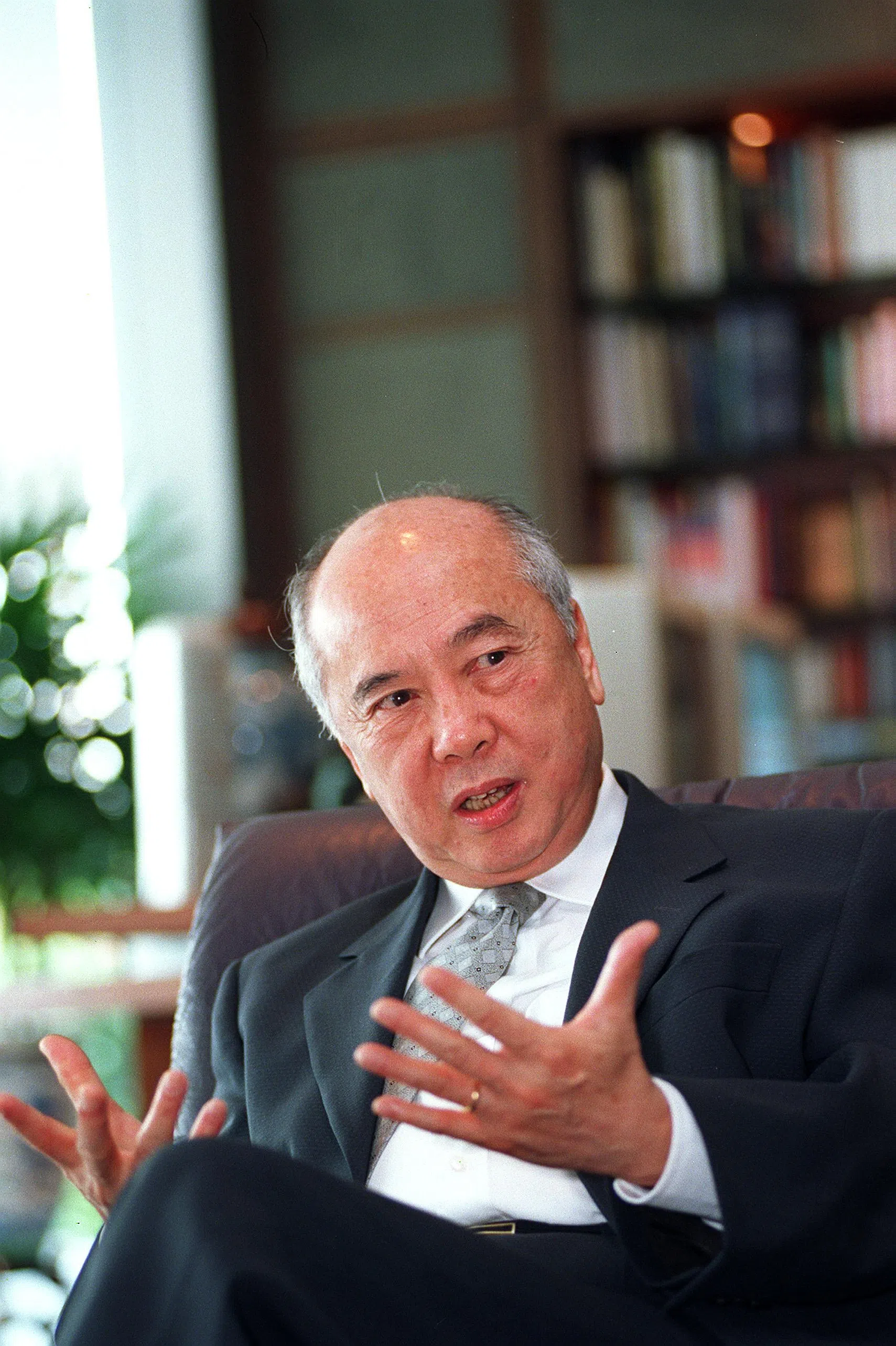AS 2024 draws to a close, we take a look at the lives of prominent businessmen who died this year, and their legacies which left a big impact on the business world.
Here are five of them.
1. Wee Cho Yaw (Jan 10, 1929 – Feb 3, 2024)
Wee was a Singaporean banker, businessman and philanthropist. He was the former chief executive and chairman of UOB – roles he succeeded to when his father retired in 1974. He played a pivotal role in growing the empire founded in 1935 by his father Wee Kheng Chiang, having been appointed to its board in 1958.
Considered Singapore’s most prominent banking personality for decades, UOB’s network expanded under Wee’s leadership from 75 to more than 500 offices and branches worldwide. In addition, the bank’s assets soared to more than S$253 billion from S$2.8 billion. When he died at 95, his net worth reached US$10.4 billion, according to the Bloomberg Billionaires Index.
While media-shy, Wee often made headlines for high-profile mergers and acquisitions deals. He was named Singapore’s Businessman of the Year in 1990 and 2001, at the annual Singapore Business Awards organised by The Business Times and DHL. He was the only banker to have won the award twice. He stepped down as CEO in 2007, and as chairman in 2013.
2. Ananda Krishnan (Apr 1, 1938 – Nov 28, 2024)
Ananda was a Malaysian billionaire and entrepreneur, known for building various businesses in the areas of oil and telecommunications and satellites. The businessman was ranked by Forbes in April as Malaysia’s third-richest person, with a net worth of US$5 billion.
BT in your inbox
Start and end each day with the latest news stories and analyses delivered straight to your inbox.
He founded the country’s second-largest telco Maxis and satellite television company Astro Malaysia. The tycoon also held a significant stake in oilfield services company Bumi Armada.
Ananda was known to shun public exposure and maintain a low profile despite his wealth and social stature. He died at the age of 86 after a long-drawn battle with lung disease.
3. Ratan Tata (Dec 28, 1937 – Oct 9, 2024)
Tata was an Indian industrialist and philanthropist, and served as chairman of his family empire Tata Group and Tata Sons from 1991 to 2012. The 86 year-old was credited to have grown Tata Group from an Indian conglomerate to a well-renowned international enterprise.
The soft-spoken bachelor’s 21 years at the helm of the business witnessed the salt-to-steel conglomerate expand its global footprint to include British luxury brands such as Jaguar and Land Rover.
At 156 years old, Tata Group’s sprawling businesses span from tea, soap and car production, operating luxury hotels to offering software services. It is known to have brought Starbucks to India.
4. Hirotake Yano (1943 – Feb 12, 2024)
Yano was the founder of Japan’s discount store chain Daiso Industries and widely regarded as the pioneer of the dollar-shop business model. He died of heart failure at 80, with a net worth of about US$1.9 billion then, according to the Bloomberg Billionaire Index.
Selling goods at the back of a truck in 1972 gave Yano the idea of charging a flat 100 yen (S$0.88) for all merchandise. This saved him the time needed to attach price tags. Five years later, he incorporated Daiso, which translates to “creating something big”.
Stagnant wages and a stalling economy in Japan fuelled the company’s success. Its model was replicated in other countries.
Yano led Daiso as its president from 1977 to 2018, when he passed the baton to his son Seiji. The closely held Daiso had 4,360 stores in Japan and 990 outside of its home market at the end of 2023, according to its website.
5. Zong Qinghou (1945 – Feb 25, 2024)
Zong was the founder and chairman of the Wahaha Group, which dethroned France’s Danone as China’s top beverage brand.
The self-made billionaire – who was once China’s richest man – died at 79 in a hospital. Wahaha did not provide details of his illness then.
Zong’s rags-to-riches story mirrored the transformation of China from a poor and largely agrarian country to the world’s factory hub and second-largest economy.
Born to a poor family, he never attended high school. Forced to live in a farming commune in 1964 during the Cultural Revolution, Zong left in 1978, after Deng Xiaoping introduced foreign investment and private business.
In 1987, Zong created Wahaha, which meant “laughing child”. Starting with a US$22,000 family loan, his wealth burgeoned as Chinese consumers became more affluent.
Zong became China’s richest man by 2012 with a personal fortune of US$20.1 billion, after a battle with then joint-venture partner Danone over Wahaha led the French food giant to sell its stake to him.







